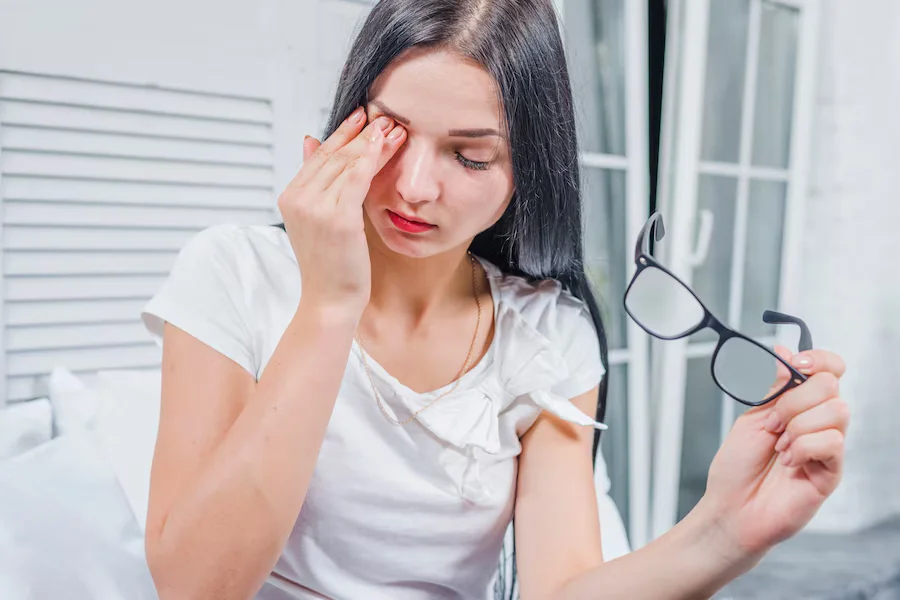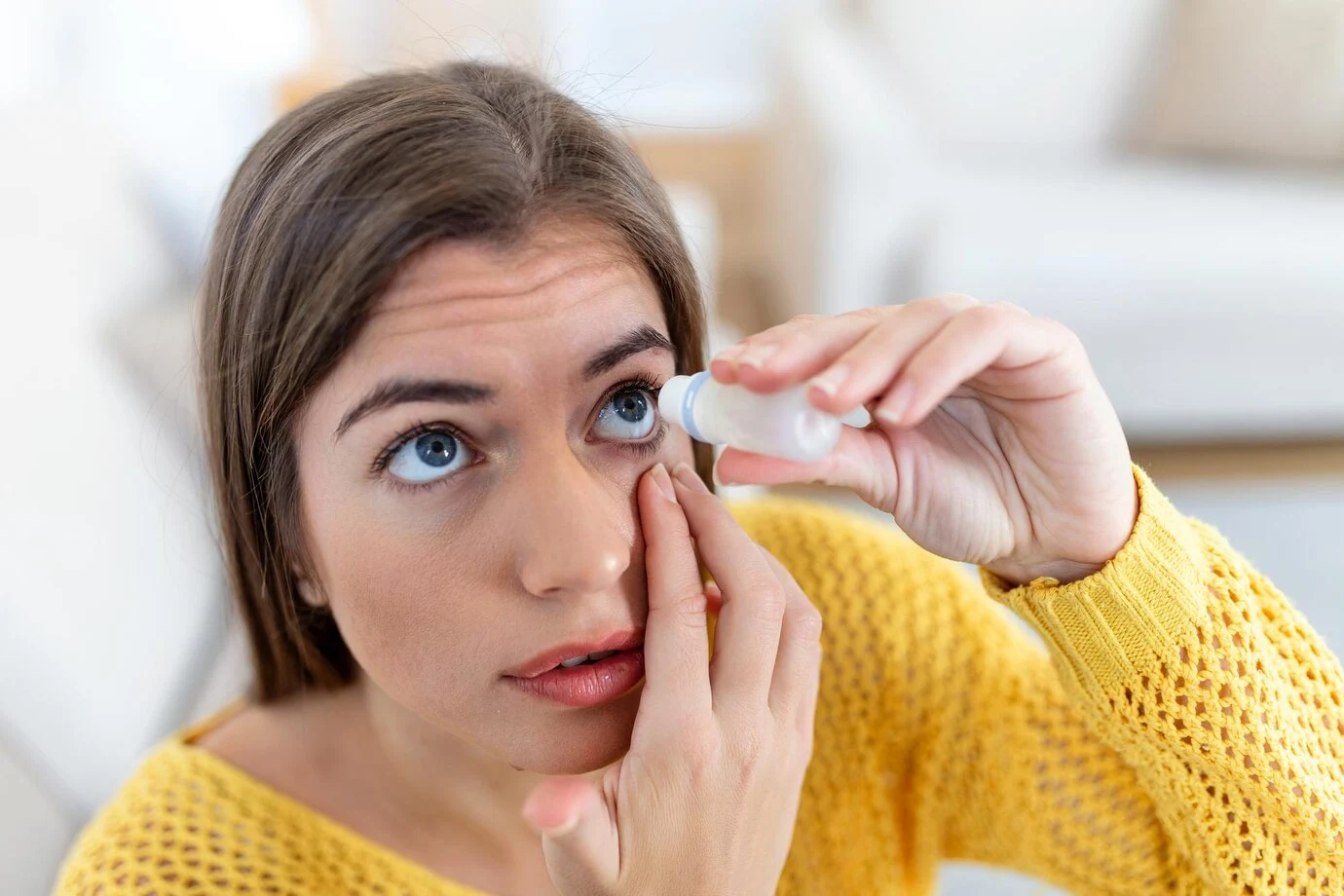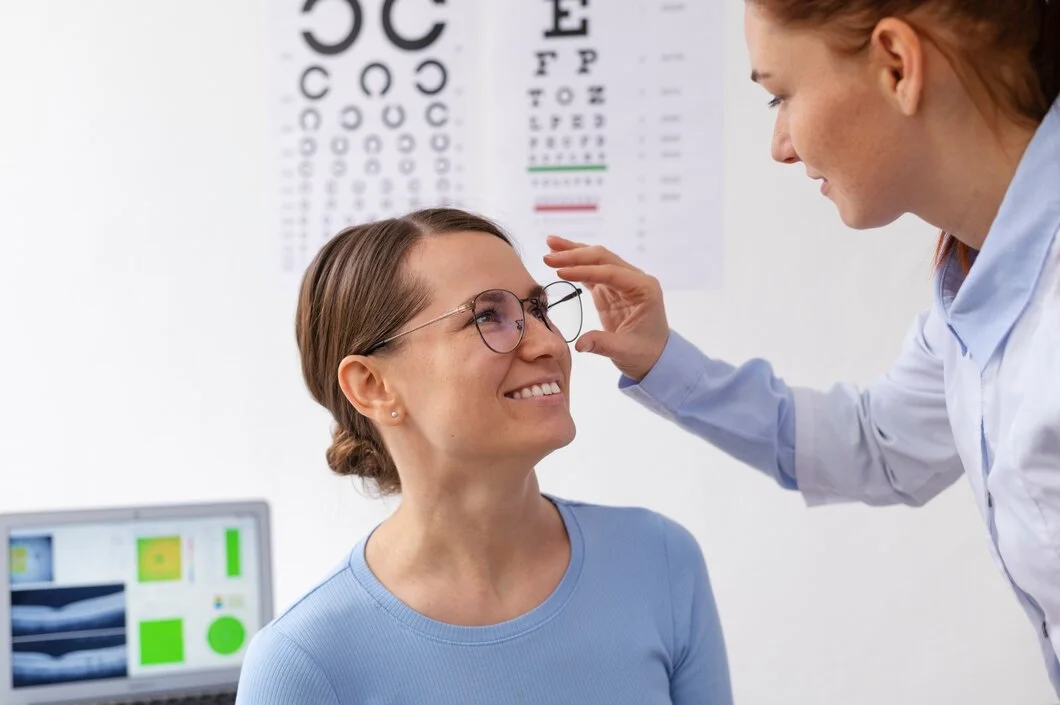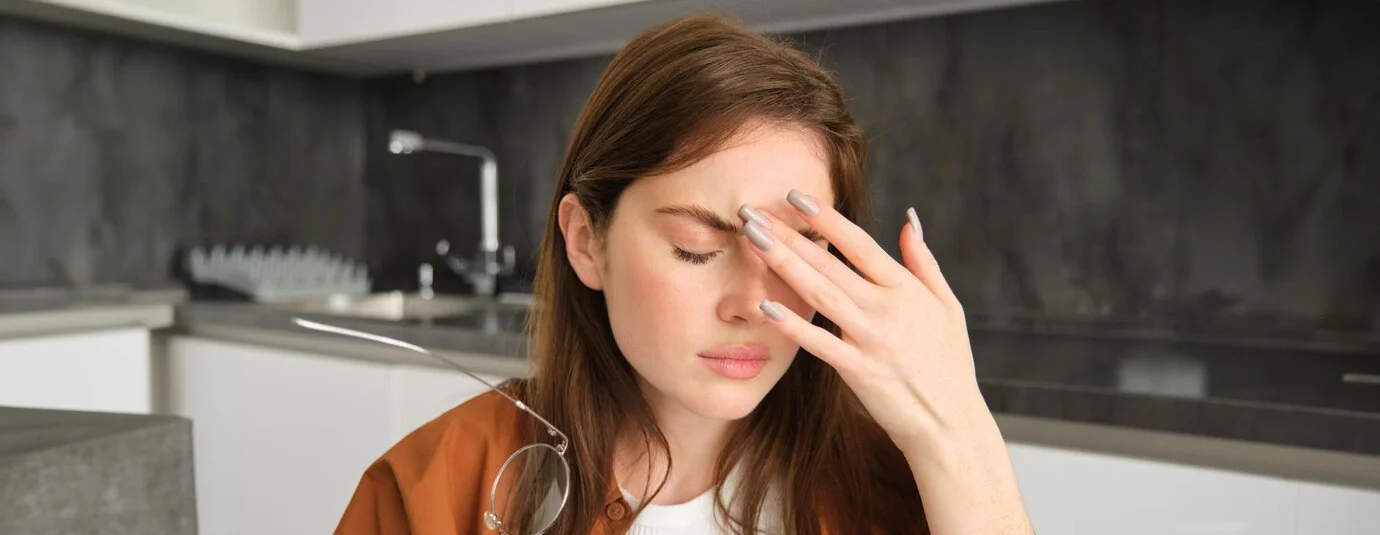Eye irritation is a common condition that causes discomfort, dryness, and itching in the eye. It usually resolves with home remedies or over-the-counter treatments.
What is Eye Irritation?
Eye irritation describes a feeling of discomfort or inflammation in the eye. It can be caused by a variety of factors, both external and internal. Here are some common culprits:
External irritants: Dust, smoke, pollen, chemicals, dry air, and even contact lens solution can irritate your eyes.
Allergies: Seasonal allergies or reactions to dust mites and pet dander can trigger itchy, watery eyes.
Digital eye strain: Staring at screens for extended periods can lead to dry, irritated eyes.
Foreign objects: Tiny particles like dust or eyelashes can get lodged in your eye, causing irritation and discomfort
Eye infections: Bacterial or viral conjunctivitis (pink eye) can cause redness, irritation, and discharge from the eye
Medical conditions: Dry eye syndrome, blepharitis (inflammation of the eyelids), and rosacea can all contribute to eye irritation.

What Does Eye Irritation Feel Like?
The symptoms of eye irritation can vary depending on the cause, but some common ones include:
Itchiness: This is a classic sign of eye irritation, often accompanied by a strong urge to rub your eyes (which can worsen the problem!).
Redness: Inflammation of the blood vessels in the white part of your eye can make it appear red and bloodshot.
Burning sensation: It might feel like you have sand or grit stuck in your eyes, causing a burning or stinging feeling.
Grittiness: This uncomfortable sensation can feel like something is stuck in your eye, even if nothing is there.
Watery eyes: Your eyes might produce excess tears in an attempt to flush out the irritant.
Light sensitivity: Bright lights or sunlight might feel uncomfortable or even painful for irritated eyes.
Blurred vision: In some cases, eye irritation can temporarily blur your vision.


While eye irritation is usually a harmless nuisance, neglecting it can lead to some complications:
Corneal scratches: Rubbing itchy eyes can scratch the cornea, the clear dome at the front of the eye. These scratches can be painful and affect your vision.
Infection: Scratches or persistent irritation can increase the risk of bacterial or viral infections in the eye.
Worsening of underlying conditions: If your eye irritation stems from allergies or dry eye, neglecting it can worsen these underlying conditions.
Care and Treatment
Now, onto the good stuff - how to find relief from that pesky eye irritation! Here's a breakdown of treatment options:
Artificial tears: Lubricating eye drops can help relieve dryness and irritation, especially if your eyes feel gritty or burning. Opt for preservative-free drops if you plan to use them frequently.
Cool compresses: For particularly itchy eyes, a cool compress made with a clean washcloth soaked in cool water can provide temporary relief.
While eye irritation is usually a common
annoyance, there are times when it's best to seek professional medical attention.
Here
are some red flags that indicate you should see a doctor:
Severe pain: If your eye pain is intense and doesn't improve with home remedies like warm compresses or over-the-counter pain relievers, consult a doctor. This could be a sign of a more serious underlying condition.
Sensitivity to light: Extreme light sensitivity, also known as photophobia, can be a symptom of various eye conditions, including infections, corneal scratches, or even migraines. If you experience sudden or severe light sensitivity alongside eye irritation, see a doctor for diagnosis and treatment.
Blurred vision: If your vision suddenly becomes blurry and it doesn't go away, it's important to see a doctor. Blurry vision can be caused by different things, and a doctor can figure out what's going on and suggest the right treatment
Sudden onset of symptoms: If your eye irritation starts abruptly and is accompanied by other symptoms like fever, headache, or a feeling of something stuck in your eye, see a doctor right away. This could be a sign of an infection or another medical issue.
Pus or discharge from the eye: This is a telltale sign of an eye infection and requires prompt medical attention. Bacterial or viral conjunctivitis (pink eye) are common cause of pus or discharge, and a doctor can prescribe antibiotics or antiviral medication to clear the infection.
Symptoms that worsen or don't improve with home treatment:
If your eye irritation persists for more than a few days (usually 2-3 days) or worsens despite trying home remedies like warm compresses and artificial tears, consult a doctor. This could indicate a more serious underlying condition that needs professional treatment.
Don't let eye irritation disrupt your life. Schedule an appointment with Elite Eye Care today!
We offer convenient locations throughout New York City to serve you better. Visit our website or call us to book your appointment and experience the Elite Eye Care difference!

